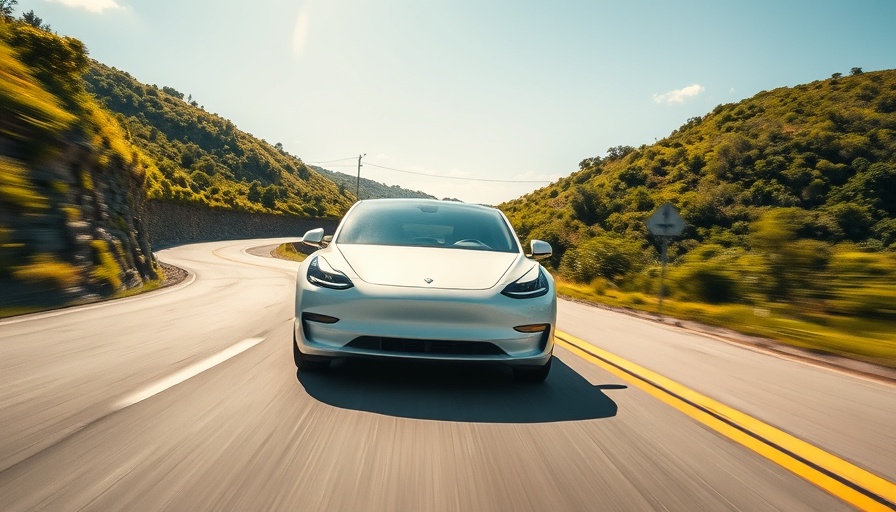
The Rise of Alternative EV Brands Amidst Tesla's Decline
As Tesla's reputation takes a hit amidst political controversies and protests, several automakers are capitalizing on the growing discontent among Tesla owners. The rise in trade-ins of Tesla vehicles suggests that many owners are looking for alternatives, creating a fertile ground for competitors like Polestar, Lucid Motors, and Ford to attract new customers through enticing deals and discounts.
Understanding the Current Shift in EV Buyer Behavior
Recent events have spurred a noticeable change in consumer behavior. Data from Edmund suggests that many Tesla owners are reevaluating their loyalty to the brand. The controversies surrounding Elon Musk’s political involvement have led to a disillusionment with Tesla, pushing some owners to seek alternative electric vehicles (EVs). Offers like Polestar’s $5,000 conquest bonus are a direct response to this shift, encouraging consumers to explore fresh options.
How Automakers Are Responding
Major players such as Volvo and Ford are leveraging Tesla’s brand woes by introducing financial incentives aimed at capturing disgruntled customers. The ongoing Tesla Takedown protests, coupled with growing vandalism incidents against Tesla cars, have intensified the urgency for competitors. Sean Tucker, lead editor at Kelley Blue Book, highlights that smaller brands may even willingly incur losses on trade-ins to dethrone Tesla from their positions.
Implications for the EV Market
The immediate future of the EV market could see reshaping due to these incentives. Many potential buyers who may have remained loyal to Tesla are now open to exploring other brands. This competitive pressure might drop Tesla’s market share if these trends persist. However, the exact impact of these trade-in incentives on Tesla's dominance remains uncertain, especially in light of the upcoming automotive tariffs that might sway buyer decisions further.
The Emotional Angle: Why Are Tesla Owners Trading In?
For many Tesla owners, the decision to trade in isn't solely financial; it's also emotional. Owners grappling with the association of their vehicles with controversial political actions may find the desire for a fresh start compelling. Walking away from their Teslas might symbolize shedding not just a vehicle, but an affiliation that no longer aligns with their values.
Future Predictions: Potential Trends in EV Buying
The continuous evolution in consumer sentiment could lead to a reshaping of brand loyalty in the EV market. Activism and social movements may increasingly influence buyer behavior, suggesting that brands promoting ethical practices and positive societal impact will attract more attention. Automakers that adapt their marketing and positioning in line with shifting consumer values are likely to thrive in this dynamic landscape.
Concerns and Challenges for EV Manufacturers
Despite the enticing offers, potential buyers should remain cautious. Some buyers may find that while switching brands seems appealing, the transition costs and concerns over long-term value and reliability are critical factors to consider before making a decision. With Tesla's return to producing desirable vehicles perceived as high-status objects, it will be important for competitors to communicate their own brand qualities and advantages effectively.
The Concluding Thoughts: What Lies Ahead for EV Buyers
As the electric vehicle market continues to evolve, the situation surrounding Tesla serves as a stark reminder of how quickly brand perceptions can shift. For EV buyers looking to make the best decision, considering both current incentives and long-term brand implications is essential. The landscape will likely continue shifting as new players emerge and as consumer values evolve.
 Add Row
Add Row  Add
Add 



Write A Comment